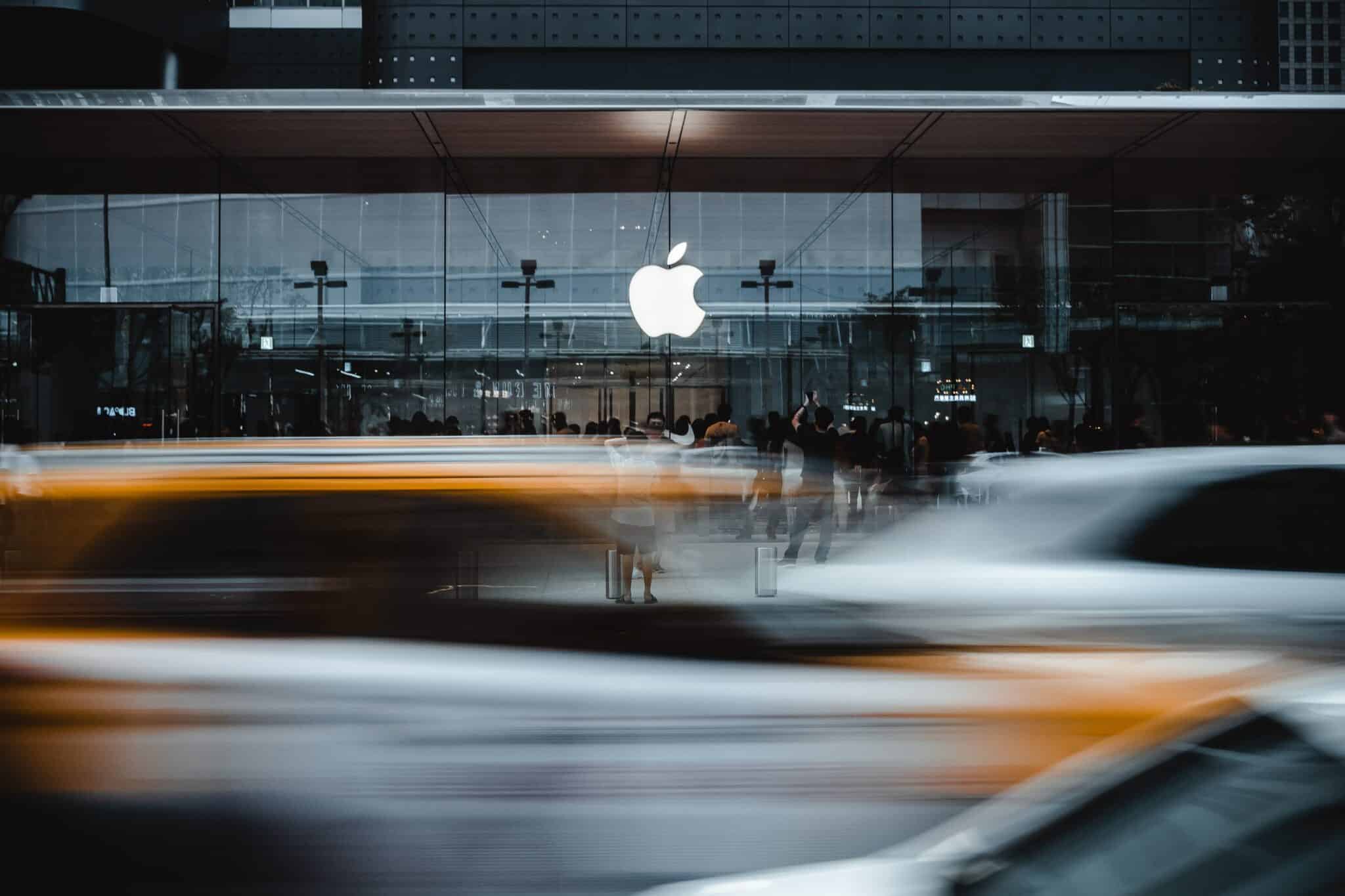
Kevin Vazquez is a staff attorney at the International Brotherhood of Teamsters. He graduated from Harvard Law School in 2023. The opinions he expresses on this blog are his own and should not be attributed to the IBT.
A Sunday New York Times article details the ongoing efforts to unionize Apple store locations throughout the country and the increasingly drastic– but unfortunately predictable – tactics the company has adopted to forestall the fledgling nationwide campaigns. “Two decades after redefining retail with sleek architecture and concierge tech support,” the Times writes, “Apple is being confronted by the industry’s latest trend: organized labor.” Thus far, the Apple saga has largely unfolded along familiar lines. The Apple employees mostly cited familiar quotidian grievances as the primary impetus behind their desire to unionize, such as rising inflation, stagnant wages, burdensome scheduling, and the augmented pressures and risks associated with retail service during the pandemic, all of which are particularly salient amid a period of skyrocketing corporate profits. Apple, in response, has adopted gradually more extreme measures to blunt the union push. It hired Littler Mendelson, the country’s most notorious union-busting law firm, and it has provided store managers with a variety of ageless anti-union talking points. The company also raised the minimum starting hourly pay for its workers to $22, a 10 percent increase from last year (and earlier this year, it agreed to offer employees more vacation time and sick days, largely in response to labor organizing).
Despite their plausible inconsistency with federal labor law, these efforts appear to have borne fruit, at least initially. The Communications Workers of America (CWA) opted to withdraw its request for a union election at an Atlanta store on June 2, claiming that Apple’s violations of the NLRA had “made a free and fair election impossible.” According to NLRB rules, the vote will be canceled, and CWA can petition to represent the workers again in six months. The Atlanta employees are, however, only one of two groups of Apple store workers attempting to unionize: a second store, located in Grand Central Station in New York, is organizing with Workers United, although the union has not yet formally petitioned the NLRB for an election at that location.
On a similar note, a Saturday Labor Notes piece describes how Starbucks workers are “helping breathe life into the labor movement” in South Carolina, the state with the lowest rate of union membership. As the article documents, most of the baristas involved in the union push in the state are high school or college students, many of whom had virtually no experience with or knowledge of labor unions or organizing prior to their involvement with Starbucks Workers United. But they have learned rapidly, in large part due to the solidarity and support shown by more grizzled veterans of the labor movement, even in a state with union density as low as in South Carolina, such as the South Carolina AFL-CIO and IATSE Local 347, in addition to workers from other Starbucks locations. Last month, a Starbucks store in Greenville became the first in the state to win union representation, and an election is currently underway at a store in Columbia, the state capital. Baristas at stores in two other South Carolina locations – where, as Labor Notes points out, Donald Trump received 70 percent of the vote in 2020 – have also filed petitions for recognition elections with the NLRB. “Starbucks and South Carolina workers are finally tired of being mistreated, harassed, and given less than what they deserve,” South Carolina AFL-CIO Vice President April Lott is quoted as saying in the article. “Their voices will no longer be silenced.”
This latent labor restiveness might be igniting throughout the Deep South: this weekend, Starbucks workers in Birmingham, Alabama became the first in the state to unionize, joining Starbucks Workers United following an overwhelming 27-1 vote. As of this week, 268 Starbucks stores have submitted petitions to the NLRB for union recognition elections, and nearly 90 percent of the 100-plus stores that have held elections have voted to unionize, even in regions, such as the Deep South, where modern labor victories are a rare phenomenon.
Finally, the federal government is considering filing the fourth labor complaint against a foreign company in Mexico since the United States-Mexico-Canada Agreement (USMCA) went into effect two years ago. According to Reuters, the government is preparing to file a trade deal complaint about alleged labor abuses committed at an auto parts manufacturing plant in the border state of Coahuila. The plant is owned by a Netherlands-based company called Stellantis, the world’s fourth-largest auto group, which operates seven other similar facilities in Mexico. Under USMCA’s rules, which are stricter than NAFTA’s, which it replaced, factories that violate labor laws could forfeit their tariff privileges on exports, and many companies have been watching early USCMCA complaints with a keen eye, eager to see how they are resolved. The trade agreement provides levers for the Biden administration to use in support of workers both domestically and internationally – but it must opt to pull them.






Daily News & Commentary
Start your day with our roundup of the latest labor developments. See all
July 31
EEOC sued over trans rights enforcement; railroad union opposes railroad merger; suits against NLRB slow down.
July 30
In today’s news and commentary, the First Circuit will hear oral arguments on the Department of Homeland Security’s (DHS) revocation of parole grants for thousands of migrants; United Airlines’ flight attendants vote against a new labor contract; and the AFL-CIO files a complaint against a Trump Administrative Executive Order that strips the collective bargaining rights of the vast majority of federal workers.
July 29
The Trump administration released new guidelines for federal employers regarding religious expression in the workplace; the International Brotherhood of Boilermakers is suing former union president for repayment of mismanagement of union funds; Uber has criticized a new proposal requiring delivery workers to carry company-issued identification numbers.
July 28
Lower courts work out meaning of Muldrow; NLRB releases memos on recording and union salts.
July 27
In today’s news and commentary, Trump issues an EO on college sports, a second district court judge blocks the Department of Labor from winding down Job Corps, and Safeway workers in California reach a tentative agreement. On Thursday, President Trump announced an executive order titled “Saving College Sports,” which declared it common sense that “college […]
July 25
Philadelphia municipal workers ratify new contract; Chocolate companies escape liability in trafficking suit; Missouri Republicans kill paid sick leave